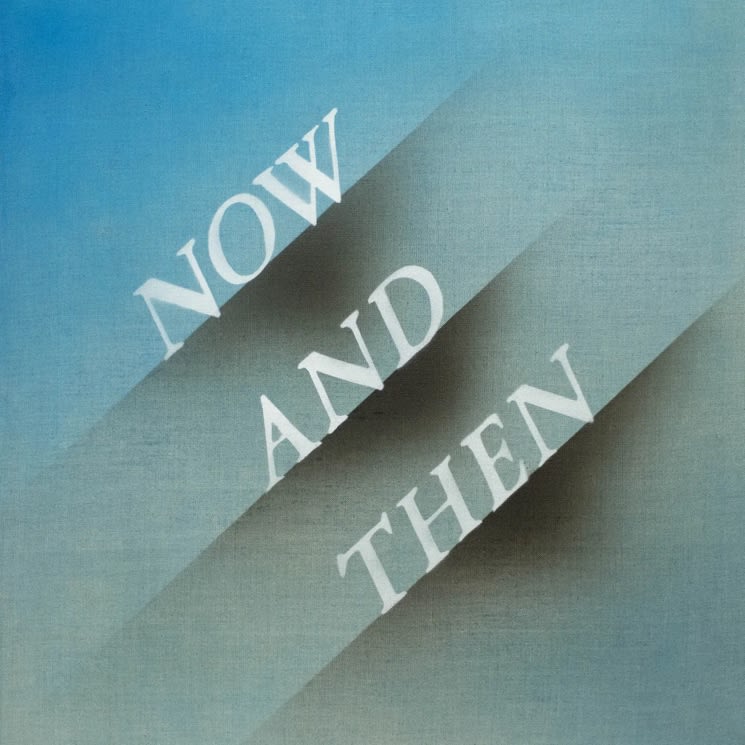"'Now and Then,' it's probably, like, the last Beatles song. And we've all played on it, so it is a genuine Beatle recording," Paul McCartney insists in the 12-minute short film that accompanies the band's final single.
It feels a bit like he's trying to convince himself, as well as us, that "Now and Then" is more than simply a novelty, but an actual song from the Fab Four. Its genesis wasn't all that different from those Beatles songs from the '90s ("Free as a Bird" and "Real Love"), as the surviving members added new parts to one of John Lennon's unfinished demos.
But while those actually good '90s tracks embraced the lo-fi quality of Lennon's demos, making it sound like he was singing with his band from the afterlife, "Now and Then" uses AI technology to clean up Lennon's voice, isolating it from his piano and allowing it to be fully produced with the rest of the arrangement.
In theory, it's a good idea — although the vocals sound as much like a computer as they do John Lennon, having none of the tender grit of his actual voice. But the real problem here isn't the technology, but the song itself: the band worked on the track in the '90s, but scrapped it when George Harrison dismissed it as "fucking rubbish."
I wouldn't quite go that far, but it's a bland and hookless piece of landfill psychedelia, and Harrison's lack of enthusiasm for the song comes through in his perfectly functional posthumous guitar work (which he recorded back in 1994). Next to his lovely leads on "Real Love," he's clearly not buying in here. McCartney even had to imitate Harrison's slide style for the guitar solo, just to pad it out a bit.
"Now and Then," the demo of which comes from 1977 (long after the Beatles broke up, but a few years before John had his relative return to form on 1980's Double Fantasy), simply isn't a strong enough foundation for the surviving Beatles to build something good on top of.
AI is capable of a lot, but it can't turn this deservedly forgotten demo into something worthy of the Beatles' legacy. This song will appear on an expanded reissue of the compilation 1967–1970 — where, sitting next to other Lennon compositions like the sublime "Strawberry Fields Forever" and "Across the Universe," it's frankly going to seem a bit ridiculous.
It feels a bit like he's trying to convince himself, as well as us, that "Now and Then" is more than simply a novelty, but an actual song from the Fab Four. Its genesis wasn't all that different from those Beatles songs from the '90s ("Free as a Bird" and "Real Love"), as the surviving members added new parts to one of John Lennon's unfinished demos.
But while those actually good '90s tracks embraced the lo-fi quality of Lennon's demos, making it sound like he was singing with his band from the afterlife, "Now and Then" uses AI technology to clean up Lennon's voice, isolating it from his piano and allowing it to be fully produced with the rest of the arrangement.
In theory, it's a good idea — although the vocals sound as much like a computer as they do John Lennon, having none of the tender grit of his actual voice. But the real problem here isn't the technology, but the song itself: the band worked on the track in the '90s, but scrapped it when George Harrison dismissed it as "fucking rubbish."
I wouldn't quite go that far, but it's a bland and hookless piece of landfill psychedelia, and Harrison's lack of enthusiasm for the song comes through in his perfectly functional posthumous guitar work (which he recorded back in 1994). Next to his lovely leads on "Real Love," he's clearly not buying in here. McCartney even had to imitate Harrison's slide style for the guitar solo, just to pad it out a bit.
"Now and Then," the demo of which comes from 1977 (long after the Beatles broke up, but a few years before John had his relative return to form on 1980's Double Fantasy), simply isn't a strong enough foundation for the surviving Beatles to build something good on top of.
AI is capable of a lot, but it can't turn this deservedly forgotten demo into something worthy of the Beatles' legacy. This song will appear on an expanded reissue of the compilation 1967–1970 — where, sitting next to other Lennon compositions like the sublime "Strawberry Fields Forever" and "Across the Universe," it's frankly going to seem a bit ridiculous.
